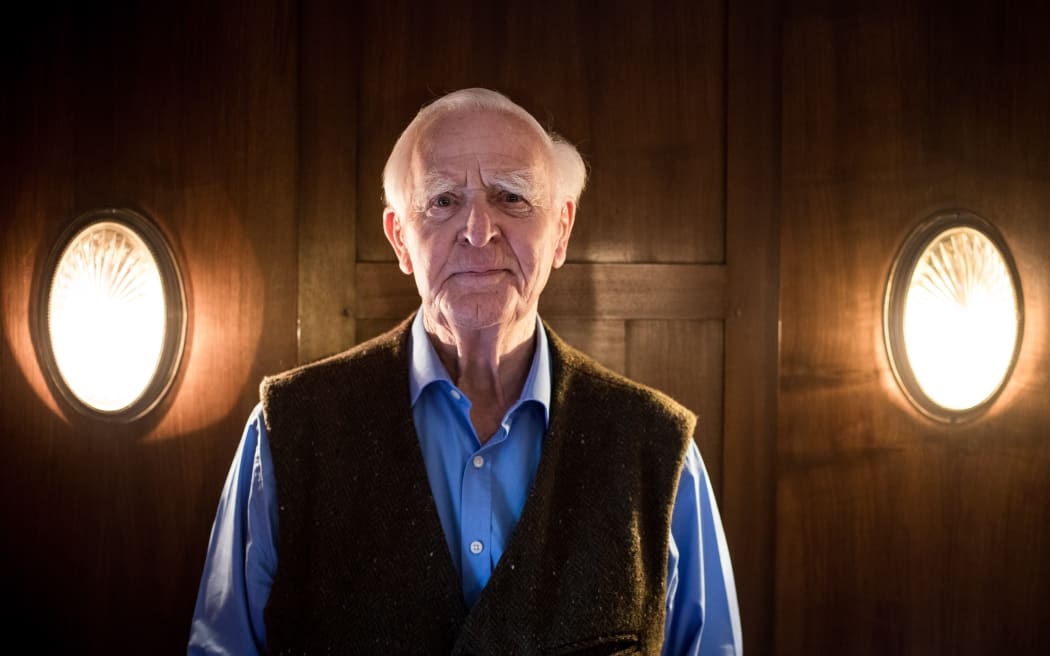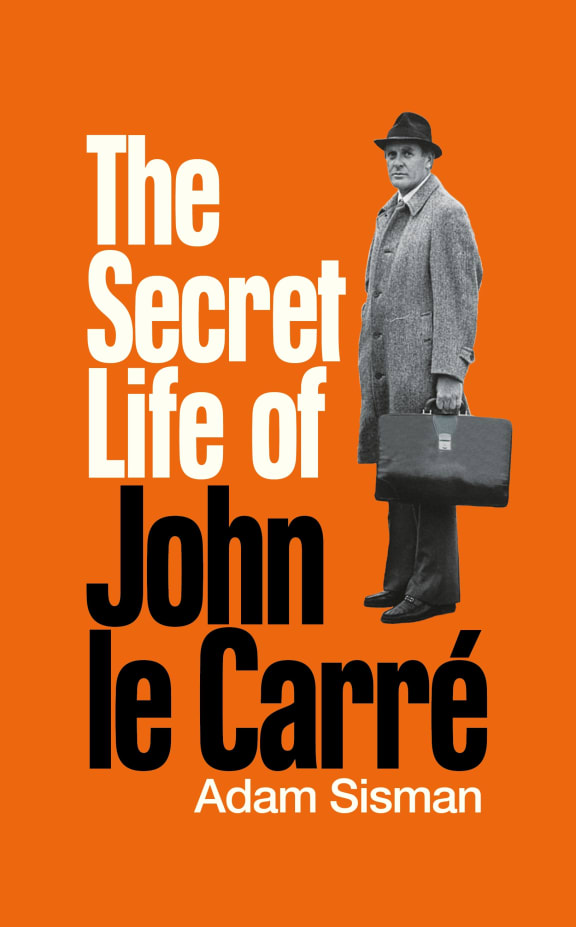Master spy novelist John le Carré had numerous clandestine affairs throughout his life, many of which have come to light after his death, says his biographer Adam Sisman.
One of the greatest novelists of the 20th century, le Carré - whose real name is David Cornwell - died in 2020.
The former spy, turned author, did not want his many love affairs revealed in the 2015 biography, which Sisman wrote and calls the truth, 'but not the whole truth'.
Sisman's new book, The Secret Life of John le Carré, identifies 11 women with whom le Carré had affairs during his marriage to his second wife Jane Cornwell.

Photo: AFP
Once le Carré and his wife Jane had died, the extent of the master spy novelist’s numerous affairs began to come to light, Sisman says.
“So, the cat is fully out of the bag. And I thought it was important to add this kind of postscript to the book that I published in his lifetime.
“Because I think it's not just a matter of gossip. I think these affairs really played an important part in his writing.”
Le Carré’s affairs were so numerous it might be thought they’d distract from his writing, but Sisman believes they spurred him on.
“He needed the kind of thrill and the jeopardy of a clandestine affair in order to fuel his writing without it, he just it felt flat and unstimulated.”
For le Carré it was all about the conquest, Sisman says.
“And as soon as the women concerned, or so it seemed, had succumbed, he started to cool off pretty rapidly. And although he had previously been saying, ‘come to me, my life, my marriage is a sham. We’ll live together, we'll have children together, etc, etc.
“Pretty soon he was not returning phone calls.”
The tradecraft le Carré learned at MI6, and made famous in his novels, was fully deployed in his clandestine activities, Sisman says.
“He used codes, dead letter boxes, cut outs, all that stuff that he'd been trained in and then had been writing about, he brought to his affairs. So he was, in a way, playing it being a spy, though he had long since retired from MI6.”
Sisman believes le Carré’s childhood is the root cause of his pathological philandering.
“He had the most extraordinary childhood. His father was a serial conman who spent two terms in prison. Half the time they lived like millionaires, and half the time they lived like the children of a convict.
“And his mother left the family home when he was only five and his brother was only seven. And he didn't see her again for the rest of his boyhood.”
This led le Carré to see woman as inherently untrustworthy, Sisman says.
“His technique was to seduce women, and then to abandon them before they could abandon you. That was his theory of life if you like.”
His philandering continued well into his later, years Sisman says.
“The last woman I know about he was involved with was almost 50 years younger than him.
“And she said to me, quite openly, that although she had been married, that her relationship with David was the most important in her life. I don't think it was the most important in his life sadly.

Photo: Allen & Unwin
“But that's what she felt, he had this enormous power to seduce.”
He used this power with everyone he encountered, says Sisman.
“He did it to everybody, in a way he did it to me and to everyone who he encountered, he had to make you love him, so that he could then reject you.”
With his charm, however, came a cruel counterpoint.
“He did damage people terribly. And some of these women some of the women recovered, but some of them their lives already ruined it.
“And I keep on finding more. I went to a 60th birthday party here in Bristol a few weeks ago. And I found myself talking to a woman who asked me about what I did.
“I mentioned this book and she said, ‘Oh, we've got a family friend, her life was ruined by John le Carré’.”
Sisman himself was the recipient of le Carré's charm as well as his darker traits.
“He was an extraordinarily charming person. That's another thing that one should make clear. I mean, when you were in his company, when he wanted to make you feel good, I don't think I've ever met anyone like that. But he could turn on a sixpence and suddenly go cold, as I think he did with many of these women.
"And I had to pinch myself, and remind myself, that we weren't really friends, and that when it was all over, he would lose interest.
“And in fact, he did cool on the book quite rapidly when he found out that I wasn't going to just write down what he told me, but I was determined for it to be independent as indeed we had agreed at the beginning.”
They had agreed it would be an “arm's-length book and it would be warts and all”, says Sisman.
“At one stage he said, I think rather amusingly, ‘I know it's supposed to be warts and all Adam, but this is all warts and no all.”
The author became increasingly grumpy and anxious about the biography, says Sisman
“At one stage he even seemed to hint, that it was causing him to contemplate suicide.”
Simon, le Carré’s eldest son, persuaded Sisman to keep a secret annex of material he had gathered that would not appear in the first biography but which could be used later.
“We spent a day together and he said, keep a secret annex of material that you can't publish in David's lifetime.
“And that secret annex is the core of the new book.”
Jane, his long-suffering wife, had a good idea about her husband’s numerous love affairs, he says.
“She was uncomfortable with the idea of a biography. But then I quickly realised why she was so uncomfortable, because it would inevitably go to areas that she didn't want to go to.
“You could say that she had had some kind of understanding with David at the start, but it's clear that a lot of this made her extremely unhappy.”
There was an awkward interview between Jane and the biographer on the subject of le Carré’s extra-marital activities, he says.
“The most extraordinary moment for me came when David arranged for me to have a private session with Jane to discuss this very subject. And he welcomed me to his house and ushered me into a room with Jane and then left us on our own while he went for a walk on Hampstead Heath.
“And I don't know which of us felt the most uncomfortable. I certainly felt extremely uncomfortable.
“And Jane, I think, was embarrassed and she produced some stilted lines that clearly had been rehearsed. And I felt we were like two puppets being manipulated by the man walking on the heath, it was perhaps the worst, the lowest moment for me of writing the book.”
The Secret Life of John le Carre is published by Allen & Unwin.

